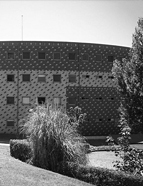

It should be noted that from the outset the MA in Modern History offered Seminars on The French Invasions and the North of Portugal (taught by Oliveira Ramos; prompting the career of Jorge Martins Ribeiro [b. 1956], later a scholar of Portugal/USA relations and mentor of a Master's course in History, International Relations and Cooperation) and on Historical Demography and the History of Populations (18th-19th centuries) (under Fernando de Sousa [who had completed a doctoral thesis on the Portuguese population at the dawn of the 19th century and later studies on emigration from Trás-os-Montes to Brazil, among others], with the collaboration of J. Manuel Nazareth [UNL] and Jorge Arroteia [U. Aveiro]); from here the careers of Jorge Fernandes Alves [b. 1954] and Gaspar Martins Pereira [b. 1957] would be born and that of Henrique David would ephemerally flourish. And it was partly through the action of these latter three, who received their doctorates in 1993, that a Master's in Contemporary History was created the following year.
Until the second half of the 1990s, this Porto contemporaneity was largely centred around the 19th century, with the History of Populations, «lato sensu», being one of the highlighted fields: one may consider Henrique David's doctoral thesis on the mortality crises in the municipality of Braga (1700-1880); the studies of Jorge F. Alves on emigration to Brazil and the educational work of the Count of Ferreira; the work of Gaspar M. Pereira on the families of Porto, from the mid-1900s to the end of the monarchy; and the thesis of Maria Antonieta Cruz [b. 1948] on Porto's bourgeoisie in the second half of the nineteenth century (defended in 1995), with the methodological mark of Adeline Daumard (1924-2003), and supervised by Luís de Oliveira Ramos. The emergence of an interest in the history of Douro viticulture was also witnessed, starting with Gaspar M. Pereira; his enthusiasm eventually 'spread' to scholars from almost all periods (Carlos Brochado de Almeida, Luís Miguel Duarte, José Augusto Pizarro, Francisco Ribeiro da Silva, António Barros Cardoso, Maria Antonieta Cruz and others), which led to the creation of an R&D Unit, a Journal (Douro: Estudos & Documentos [Douro: Studies & Documents]) and a collective History of the Douro.
